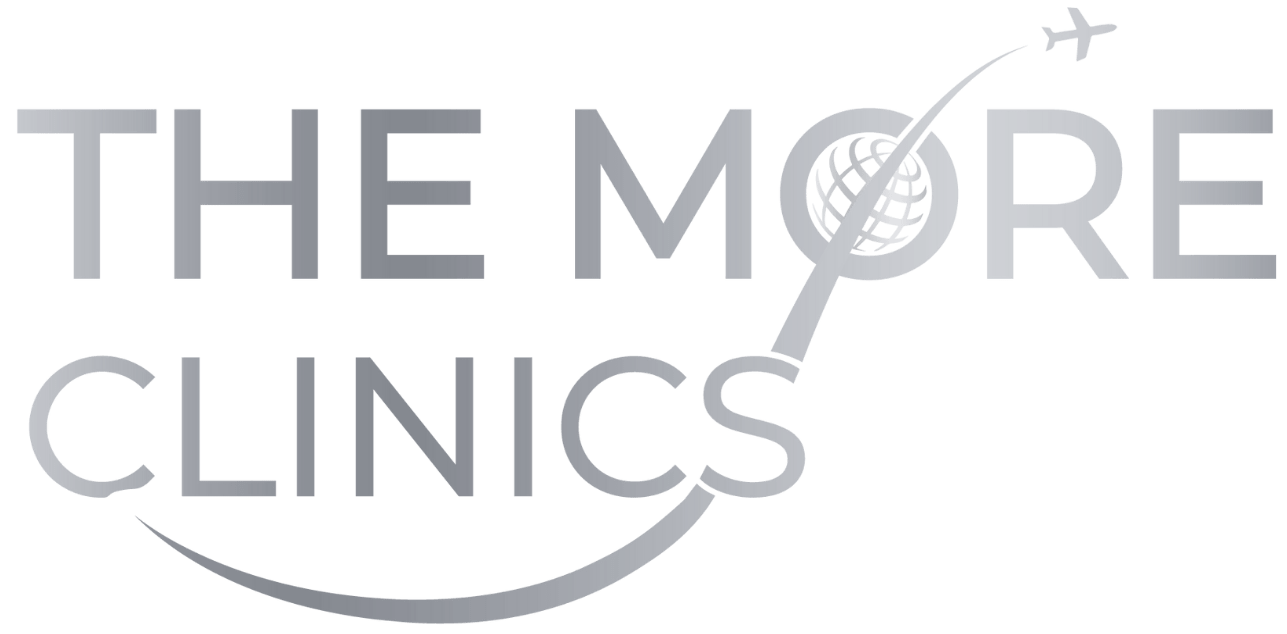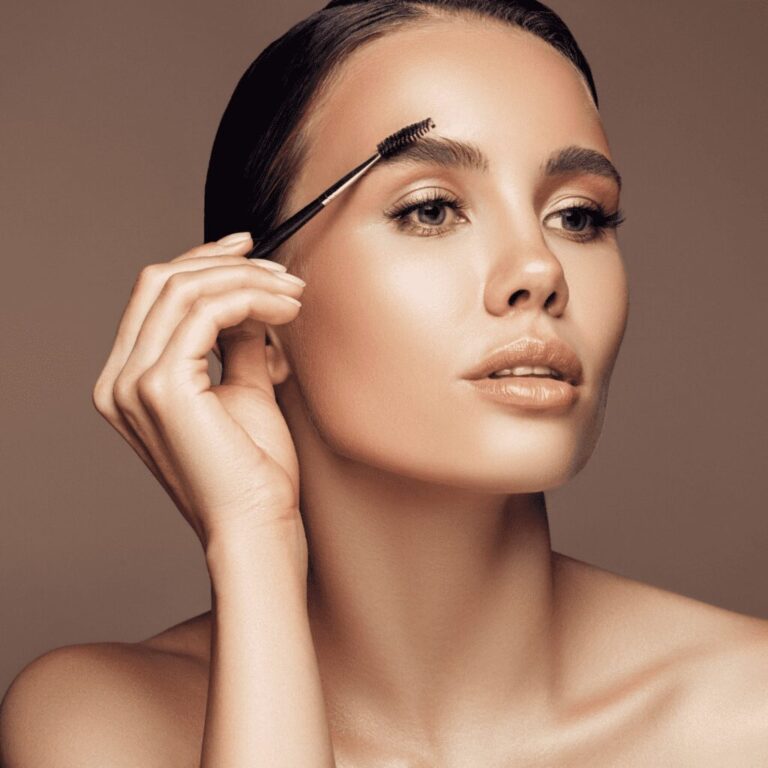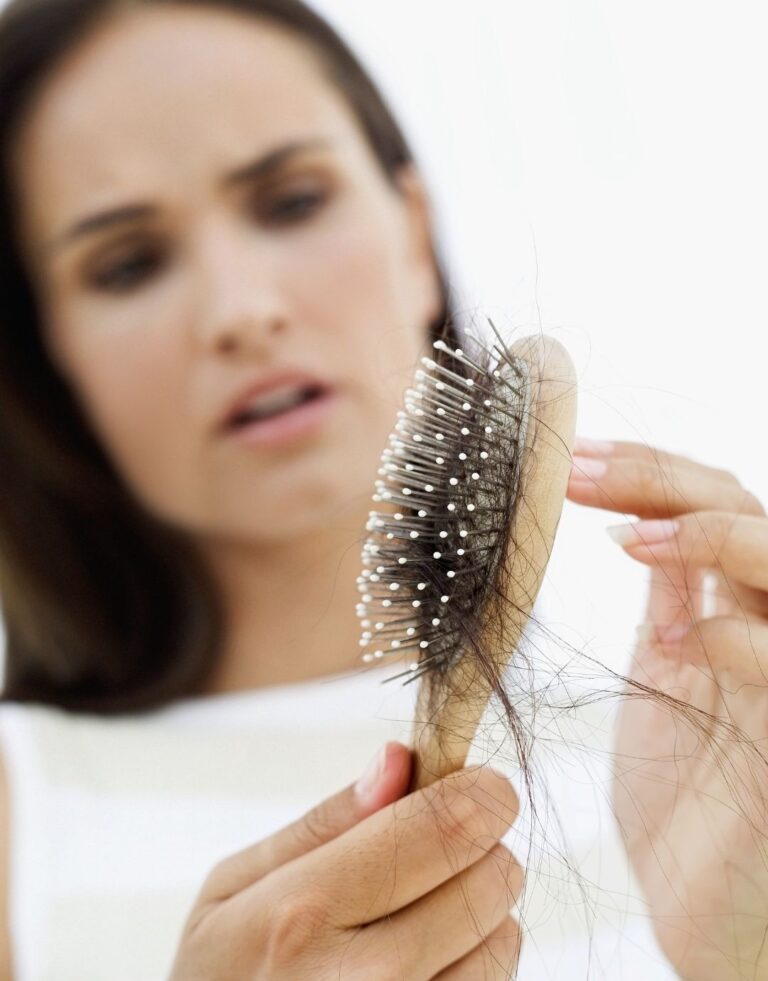Hair Loss Causes and Prevention
Hair loss, also known as alopecia, is a common problem that affects both men and women. Understanding the hair loss causes is very crucial because wrong treatment can cause even more hair loss.
While there is no single solution for everyone, identifying the underlying cause of hair loss can help in deciding the best course of action.
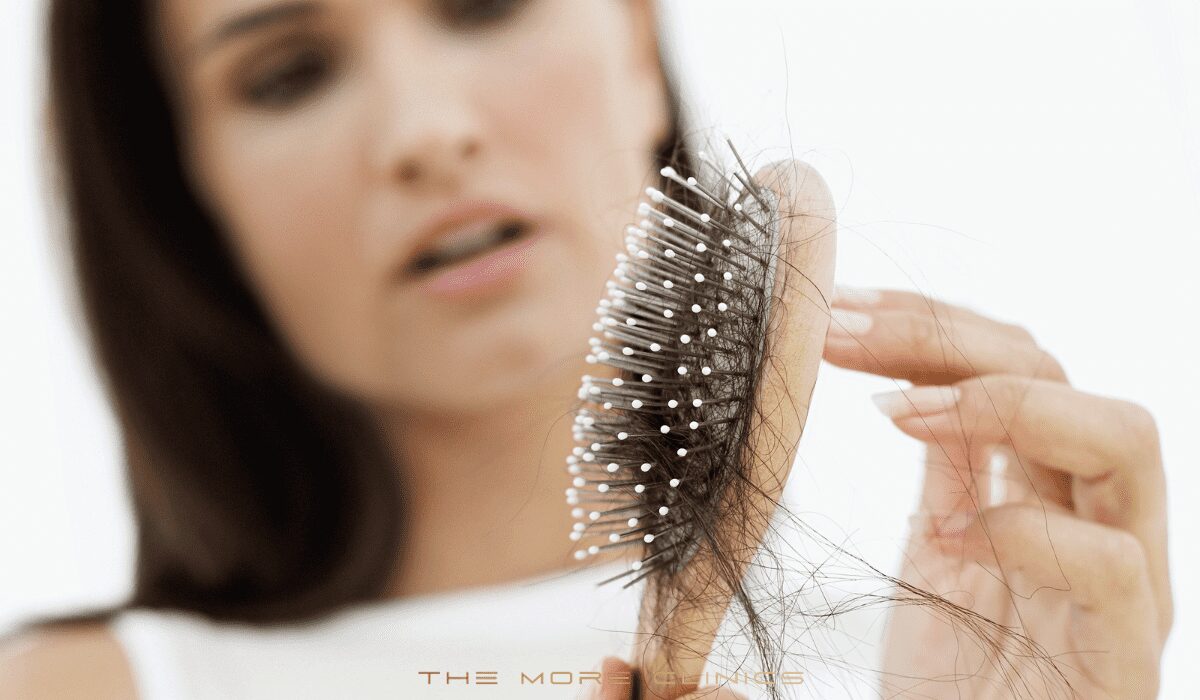
With the right approach, it is possible to manage hair loss and promote healthy hair growth. So let’s delve deeper into the factors behind hair loss and gain insight into how we can prevent or treat it.
What is Hair Loss ( Alopecia)?
Hair loss is the partial or complete absence of hair from areas where it usually grows. It ranges from a small patch to total baldness. Hair thinning, on the other hand, is when the individual strands become thinner and fewer in number.
According to the American Academy of Dermatology, hair loss, or alopecia, affects approximately 80 million men and women in the United States. On average, a person can lose 50 to 100 strands of hair each day, and this is considered normal hair shedding. However, when the shedding surpasses this average and the hair does not grow back as quickly, noticeable hair loss occurs.
For more information read our post about types of hair loss.
Hair loss Causes
Hormonal Imbalance
Hair loss can be a frustrating experience for anyone, and it can be caused by a variety of factors, including hormonal imbalance. Hormones as hair loss cause play an important role in regulating our bodies, and when they are out of balance, it can lead to a wide range of issues, including hair loss. For women, hormonal imbalances can occur during pregnancy or menopause, while for men, they can be affected by conditions such as androgenetic alopecia and hair loss after pregnancy. (Hair Loss Postpartum)
Hormonal imbalance can be reason of these types of hair loss: Androgenetic Alopecia, Telogen Effluvium, Anagen Effluvium. This type of hair loss is caused by drugs or chemicals damaging the follicles and preventing them from growing new hairs.
Genetics
Genetics is one of the major contributing factors to hair loss causes. Certain genes can make individuals more susceptible to hair loss conditions such as:
Alopecia Barbae, Androgenetic Alopecia, and Alopecia Areata.
The most common type of hair loss is androgenic alopecia, or hereditary pattern baldness. It affects both men and women but is more predominant in men, with a whopping 95% of hair loss cases being attributed to this cause.
How Nutrition Cause Hair Loss
Your diet does more than just affect your overall health, it also plays a crucial role in the health of your hair.
Nutritional deficiencies have been linked to hair loss causes, thinning, and brittleness. Specifically, deficiencies in iron, vitamin D, and biotin can cause hair damage and loss. Iron helps to carry oxygen to the hair follicles, and without enough of it, the follicles can become starved for oxygen and lead to hair loss.
Vitamin D is necessary for the growth and maintenance of healthy hair follicles, while biotin helps to strengthen hair and prevent breakage. Therefore, it’s important to ensure that your diet includes a variety of nutrient-rich foods to keep your hair growing strong.
Common Cause : Stress
Stress is an inevitable part of life, but when it starts to impact our physical health, we know it’s time to take action. The connection between emotional well-being and hair loss is a complex one.
Alopecia areata, Telogen effluvium, Trichotillomania are three types of hair loss can be associated with high stress levels. Stress-induced hair loss cause is not necessarily irreversible. By effectively managing stress, there is a possibility of hair regrowth. Healthy lifestyle practices, such as getting enough sleep, exercise, and a balanced diet, can help to reduce stress levels.
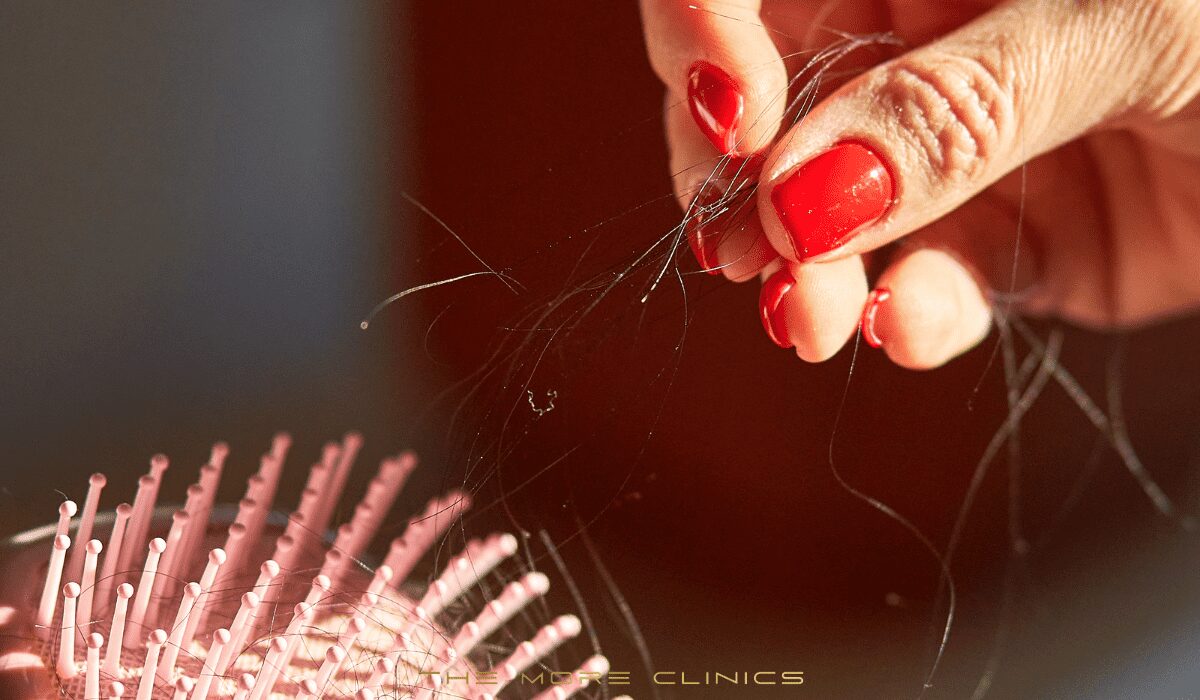
Effective Strategies for Hair Loss Prevention
It’s natural to be concerned when you notice hair shedding more than usual, but fear not. There are several preventative measures and remedies available that can help reduce hair loss and promote stronger, healthier hair. There is variety of home remedies, hair care products, prevention tips, and essential oils that are renowned for stimulating hair growth and maintaining hair health.
Related Post: Home Remedy to Battle Hair Loss
Related Post: Hair Loss Prevention Tips.
Essential Oils for Hair Loss Prevention
Your hair is your crowning glory, and you want it to look and feel its best. But with all the hair products on the market, it can be hard to know what truly works. This is where essential oils come in.
Related Post: 10 Essential Oils for Hair Health and How to Use Guide.
Nutrition and Hair Loss: Superfoods to Include in Your Diet
Did you know that the key to great hair could be found in your diet? That’s right! Certain superfoods can help to nourish your hair from the inside out, leaving you with luscious, healthy locks. Incorporating foods like spinach, sweet potatoes, avocados, and salmon into your diet can provide your hair with the nutrients it needs to grow strong and vibrant. So, if you’re looking to take your hair game to the next level, consider adding these superfoods to your daily meals for a boost of nutrition. Your hair (and your confidence) will thank you!
Seeking Professional Help for Hair Loss
Whether you’re experiencing mild hair thinning or a more severe hair loss condition, seeking professional help can provide you with the expert guidance and support you need.
Professional hair loss treatments can help you regain your confidence. From hair restoration surgery to non-invasive treatments, there are various solutions to help you combat hair loss and achieve a fuller, healthier head of hair.
Hair Transplant Surgery
Hair transplant surgery has come a long way in recent years, offering advanced techniques to restore your hairline. Rather than using outdated procedures that left patients with a “hair plug” appearance, today’s hair transplant surgeries use methods that create a natural-looking result.
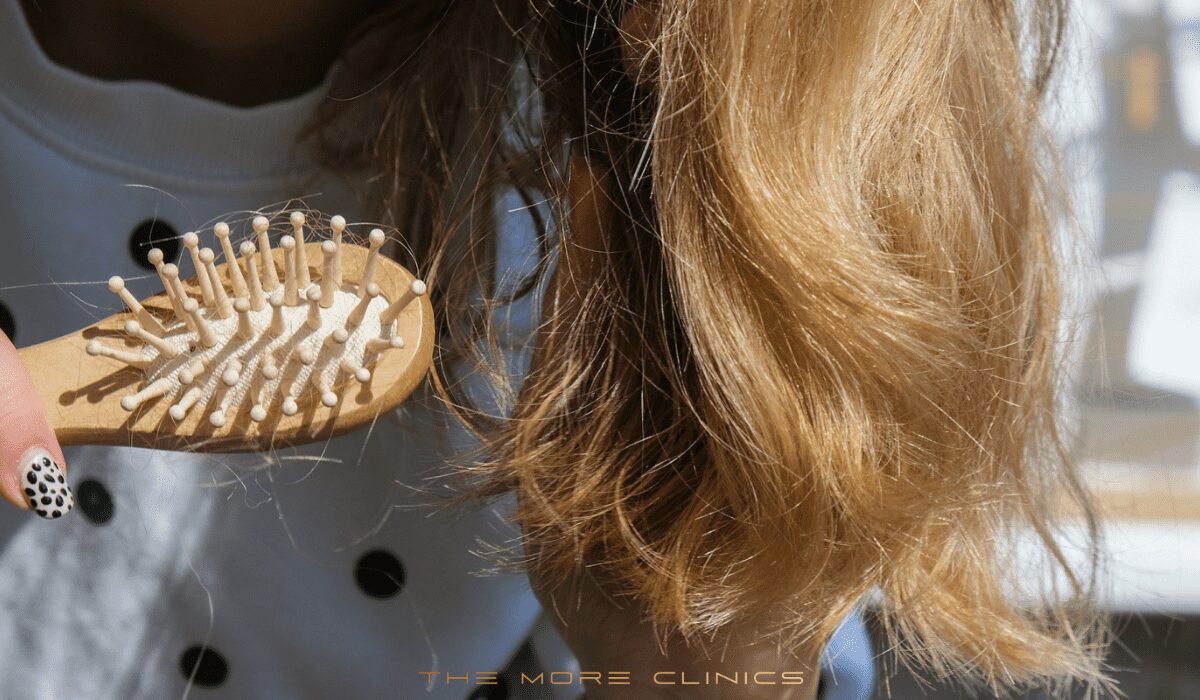
Advanced techniques like Follicular Unit Extraction (FUE Hair Transplant) or Direct Hair Transplant (DHI) allow for precise extraction of individual hair follicles, resulting in a seamless integration and natural look. With these advanced techniques, you can restore your hairline and confidence with ease.
Last Words from The More Clinics
At The More Clinics, we understand that hair loss can be a frustrating and difficult situation to manage, but it is manageable. Our team of professionals is dedicated to guiding you on your journey to better hair health.
Our experienced medical staff have been successfully helping men and women dealing with hair loss for many years. Contact us today to learn more and get your Free Consultation.
GET A FREE CONSULTATION!
Let’s Start Planning Your Treatment %100 Guarantee Results.
Medically Reviewed by Dr. Seda Erdoğan who specialized on Hair Transplants, Dermatology
